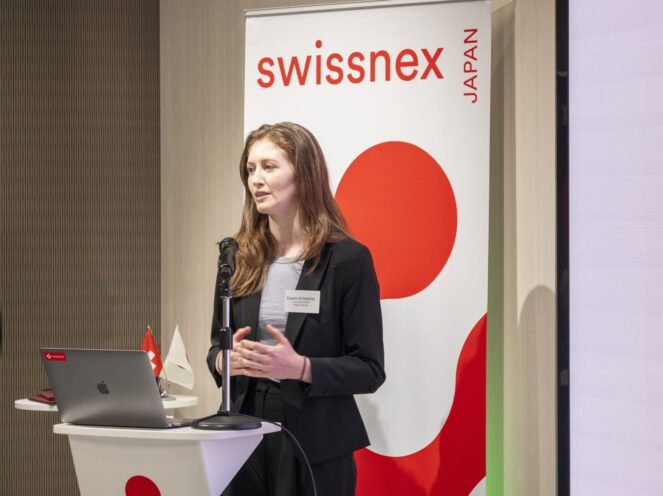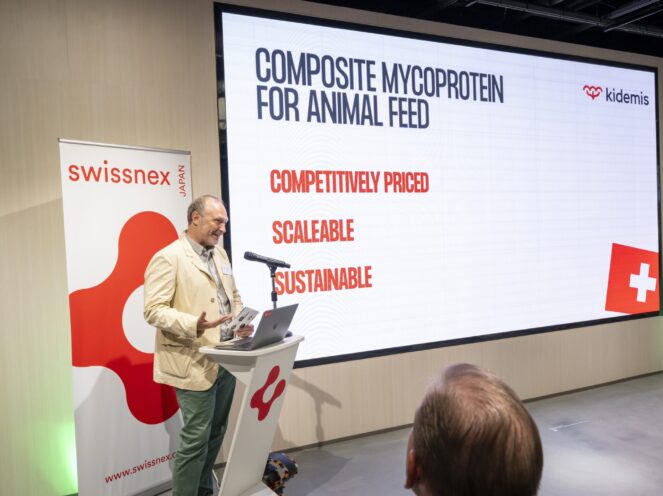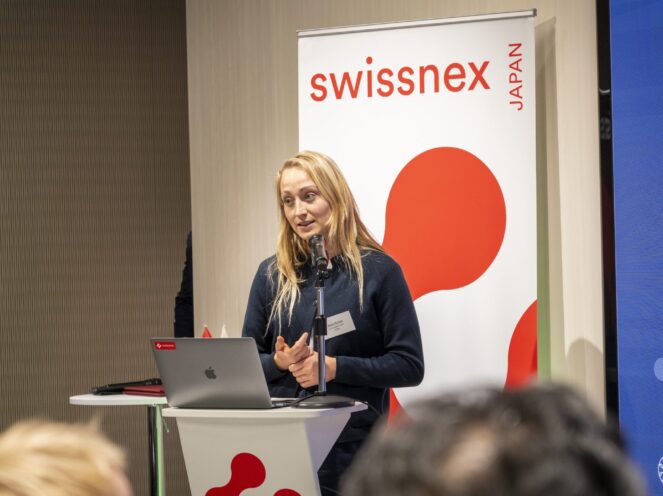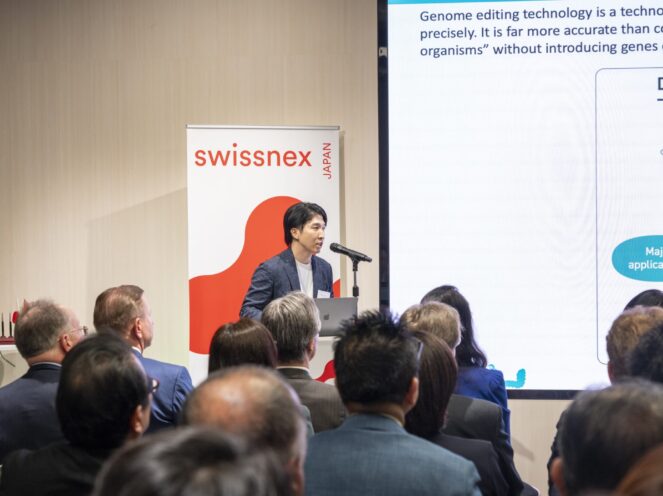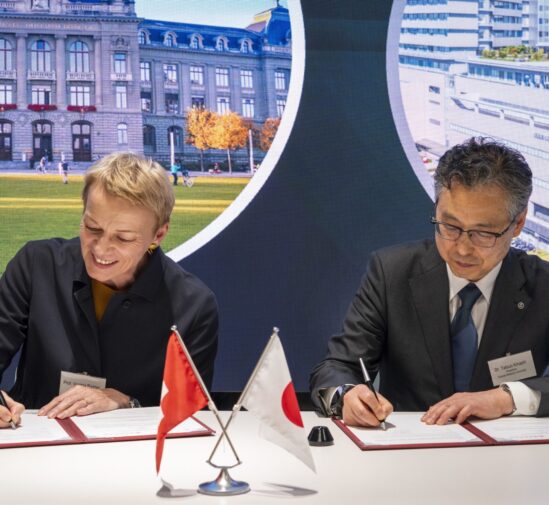
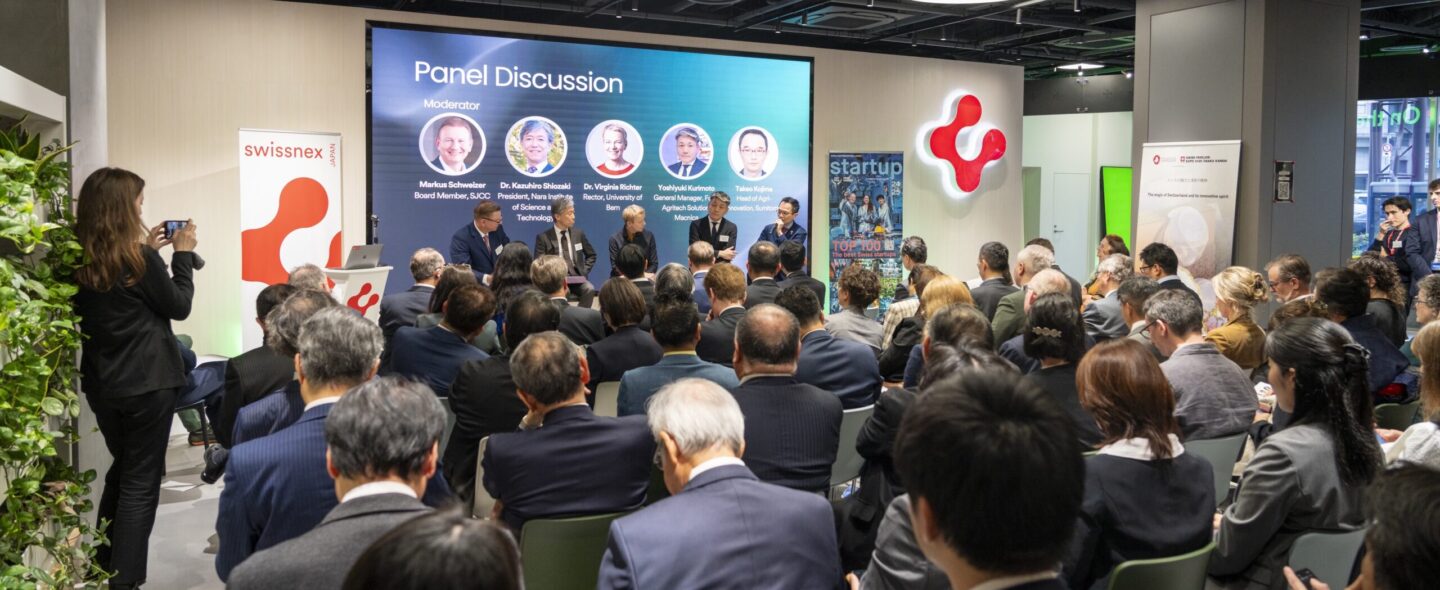
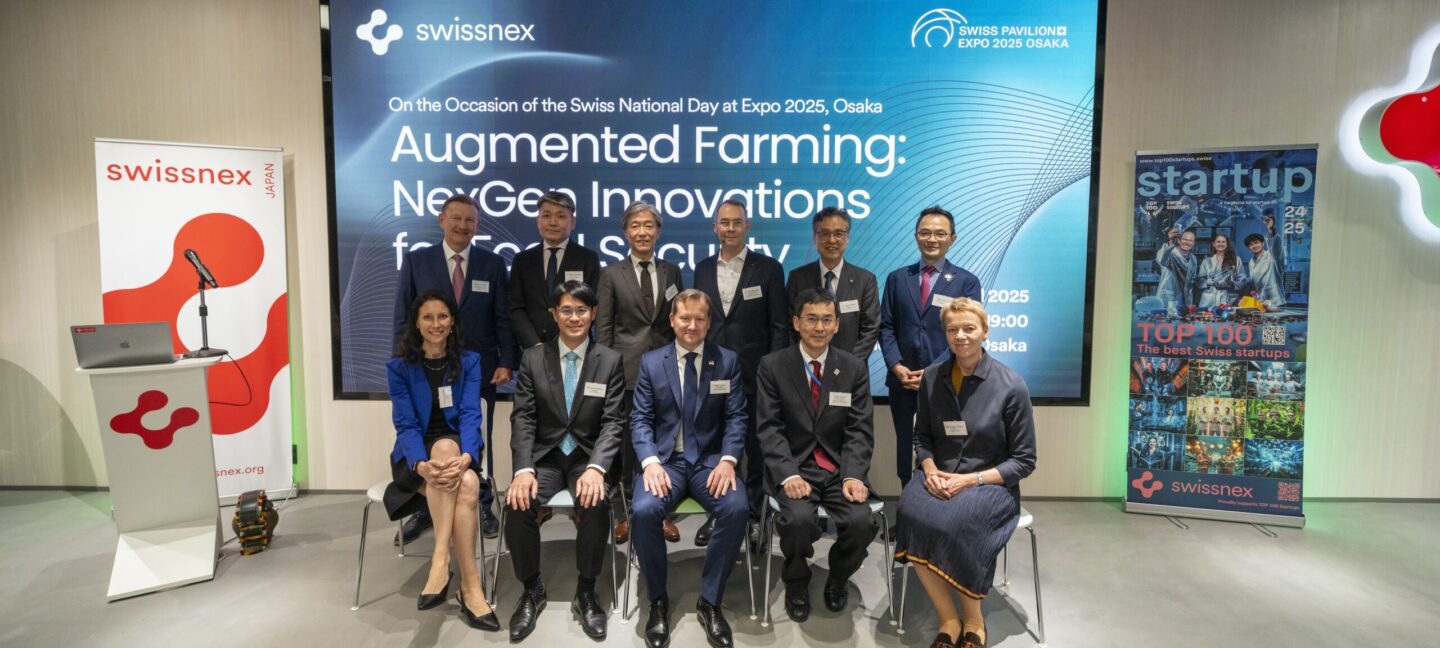
From left to right: (Front) Dr. Anna Fontcuberta i Morral, Gov. Makoto Yamashita, Amb. Roger Dubach, DG Hiroshi Aimoto, Dr. Virginia Richter, (Back) Markus Schweizer, Yoshiyuki Kurimoto, Dr. Kazuhiro Shiozaki, Dr. Felix Moesner, Dr. Tatsuo Kinashi, Takeo Kojima
Connecting the Dots in AgriTech Innovation
Welcome remarks by Dr. Felix Moesner, Consul and CEO of Swissnex in Japan, set the tone for an evening centered on meaningful collaboration. “What could be better than to do this together with Switzerland and Japan,” he said, underscoring Swissnex’s core mission of “connecting the dots” across borders and disciplines.
Ambassador Roger Dubach emphasized the urgency of rethinking agriculture amid climate change, labor shortages, and global food insecurity. With both countries at the cutting edge of smart farming and robotics, the Ambassador highlighted the potential for joint solutions with global impact.
-
Interview video
A Decade of Friendship, A New Era of Exchange
The event also marked the 10th anniversary of the friendship agreement between Nara Prefecture and the Canton of Bern. Governor Makoto Yamashita of Nara Prefecture discussed the longstanding relationship between Nara and the Canton of Bern, noting their 2015 friendship agreement and subsequent exchanges. He highlighted that new academic exchange agreements between institutions from both regions celebrated the 10th anniversary of this relationship.
The collaboration gained additional depth with the signing of a Memorandum of Understanding between the University of Bern and Kansai Medical University. This academic bridge promises five years of exchange in research, student and faculty mobility, and joint programming—paving the way for interdisciplinary solutions to global agricultural challenges.

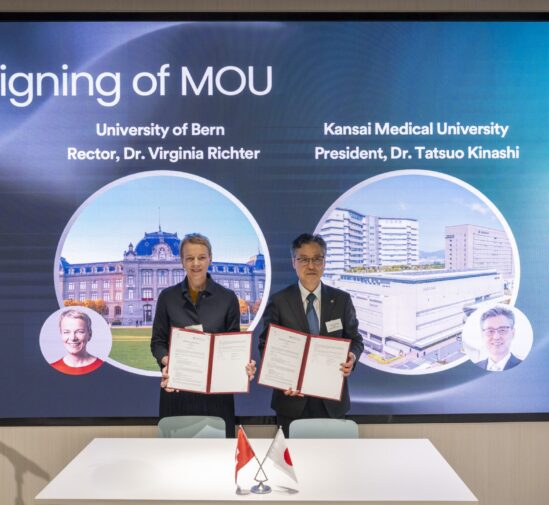
Smart Systems in Action: National and Startup Perspectives
Dr. Anna Fontcuberta i Morral from EPFL discussed the importance of agricultural innovation in addressing global challenges. She identified three key challenges: climate change creating more extreme crop conditions, soil health deterioration, and the decreasing agricultural workforce. She emphasized how technologies like drones, satellites, digital twins, and robotics can create more efficient and sustainable food systems.
Director General Hiroshi Aimoto from the Ministry of Agriculture detailed Japan’s long-term investment in smart agriculture. He highlighted that Japan has been promoting smart agriculture since 2013, with demonstration projects implemented in 217 districts nationwide since 2019. He showcased various technologies, including robot tractors, automated rice transplanters, and AI-powered cabbage planting machines that have significantly reduced labor requirements.
These national-scale efforts were complemented by cutting-edge innovations from startups spanning both nations:
- Fabas Foods (CH): Eleanor McSweeney introduced a bean-based dairy alternative with 80% fewer emissions, designed for use in traditional dairy production lines. Their yogurt pre-mix offers a creamy, protein-rich plant-based option poised to disrupt a vastly underpenetrated market in Japan.
- Kidemis (CH): Turning agricultural waste into high-value aquafeed, Constantin Marakhov presented their mycelium-based protein solution, which reduces dependence on fishmeal while tackling waste and marine biodiversity loss.
- Sallea (CH): Anna Bünter unveiled a new frontier in cultivated meat with 3D edible scaffolds enabling the production of premium steaks and fillets—offering both sustainability and gastronomic quality.
- Setsuro Tech (JP): Kohei Ota explained how genome editing can combat desertification in Mongolia by producing high-quality cashmere goats. Their work demonstrates how biotechnology can balance economic needs with environmental stewardship.
-
![]()
Eleanor McSweeney
CCO, Fabas Foods *Powered by Innosuisse
Learn more -
![]()
Constantin Marakhov
CEO & Founder, Kidemis
Learn more -
![]()
Anna Bünter
CCO & Co-Founder, Sallea *Powered by Innosuisse
Learn more -
![]()
Kohei Ota
Director of Sales, Setsuro Tech
Learn more
Insights from the Experts
A dynamic panel discussion featuring experts from academia and industry, and led by Thomas Schweizer from the Swiss-Japanese Chamber of Commerce (SJCC), explored the transformative role of AI in agriculture. Panelists agreed that food security is not just a technological issue but a cultural and political one. From farmer data hesitancy to infrastructure gaps, the path to smart agriculture is complex but promising.
AI was seen as a game-changer in genetic research and farm efficiency, capable of uncovering insights invisible to the human eye. Robotics, controlled environment agriculture, and traceability technologies were identified as next-wave trends that will shape the future of food.
Beyond technology, the event also included an art exhibition curated by Dr. Serena Cangiano from SUPSI, examining how AI intersects with society and human values. This critical perspective reminded attendees that innovation must remain grounded in human context and ethical reflection.
The evening concluded on a convivial note with a Swiss wine tasting, featuring a curated selection of regional wines available in Japan offered by Nicolas Joss, CEO of Swiss Wine Promotion—an apt reminder that agricultural innovation also serves the pleasures of the table.
